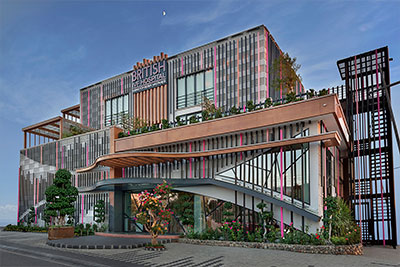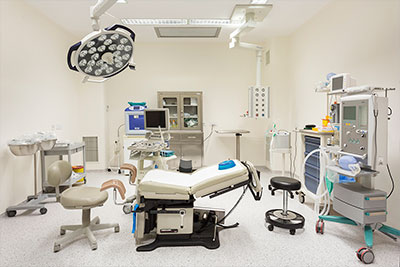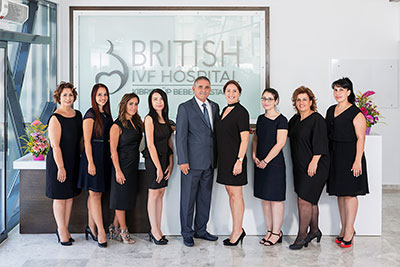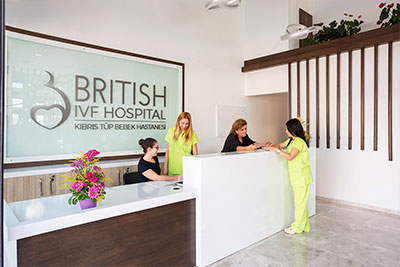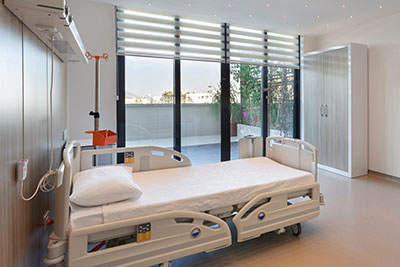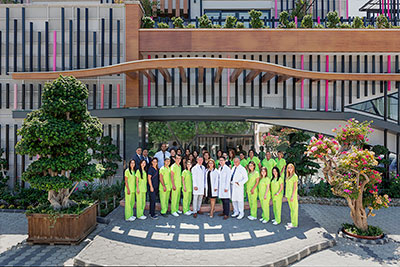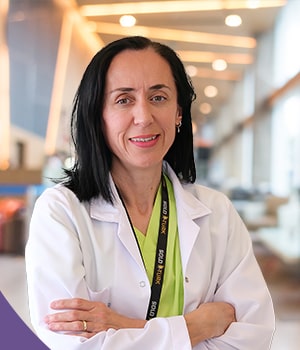One of the world's top in vitro fertilization clinics and in vitro fertilization clinic of 2016 at the World Health Tourism Congress, the Cyprus Fertility Hospital In Vitro Fertilization Clinic is your first step towards achieving your dream of having a child. It possesses the same wealth of knowledge and expertise, the same belief in offering access to the most advanced technologies and the same dedication to your wellbeing with up to 60% lower costs compared to other EU countries.
Our excellent success rate allows us to turn couples into happy parents every 2.5 hours.
What makes the donation services of the Cyprus Fertility Hospital in vitro fertilization clinic stand out?
We go above and beyond to provide excellence in infertility treatment:
- A unique Comprehensive Genetic Screening Centre in Cyprus - one of the few centres to screen donors for over 600 diseases arising from over 6600 mutations.
- A legal framework to preserve anonymity - giving easier access to donated eggs or sperm.
- One of the largest donor networks in the world, offering over 1800 eggs
- Gender selection assisted by MicroSort
- Up to 60% cost reduction compared to EU countries
- No waiting list
- Free donor search system (online)
- Advanced solutions to improve pregnancy outcomes (MicroFilter - Fertile Ultimate, MitoScore and slow motion imaging)
- Tandem cycle
Where do donors come from?
We know that long waiting lists and lack of choice are major problems for patients who need a donation to start a family. To reduce wait times to zero and provide a variety of choices for our patients, we have built one of the largest donor networks. With over 1800 egg donors in our own donor pool and thanks to our collaboration with Europe's leading licensed sperm banks, we are able to provide access to eggs and sperm that are donated by young, healthy, genetically screened men and women.
Can I find out who my donor is?
No. The anonymity of all donors is respected at all times. However, as part of the selection process, we can inform you thoroughly about the donor, such as eye and hair color, age, body type, interests, education, specific character traits, etc.
How are donors selected?
Choosing a suitable donor is a very important step and we want to make sure that couples are happy with their choice. Any choice of donor at our centre must be made in accordance with the guidelines set by the international reproductive medicine associations (the European Society for Human Reproduction and Embryology and the American Society for Reproductive Medicine). Our egg, embryo and sperm banks contain a wealth of information and donors are selected based on the following strict criteria:
- Detailed assessment of age, education, overall and mental health
- Testing for blood-borne and sexually transmitted diseases
- Comprehensive genetic screening for chromosomal or gene level defects (optional)
- Compatibility of blood groups
- Special desires such as artistic talent, body characteristics and place of birth
Genetic screening
Thanks to the development of modern, innovative technologies, genetic screening can now be safely performed on many levels for couples planning to undergo infertility treatment at our center.
At the donor selection level: Upon request, you and your partner/donor can be screened for more than 600 diseases and 6,600 disease-causing genetic defects through "Advanced Carrier Screening Tests" such as the CGT and the Recombine test.
At the sperm level: On request, sperm are separated according to sexual status using the MicroSort technique and the healthiest can be filtered through the latest microfluidic technology (Fertile).
At the embryo level:
- If both partners carry disease-causing mutations, the embryos can be screened for this specific genetic disease and a healthy embryo is achieved through preimplantation genetic diagnosis (PGD)
- If both partners are carriers of a specific disease and there is an affected sibling who needs a stem cell transplant, the embryos can also be screened for both disease-causing mutations and Human Leukocyte Antigen (HLA) genotypes (HLA typing)
- Where appropriate, Complex Chromosome Screening (CCS) and Mitochondrial DNA Analysis (MitoScore) can be performed by Next Generation Sequencing (NGS) or microarray-based Comparative Genomic Hybridization (aCGH) to select the most genetically suitable embryo for implantation
At the level of the endometrium: The measurement of endometrial receptivity (ERA), which is based on the analysis of 238 individual genes that are important for implantation, provides the most optimal day and time for successful embryo implantation.
Can I choose the sex of my baby?
Sex selection using MicroSort is a common practice in our clinic. Sex determination is done before the embryo is transferred (before pregnancy). It requires the use of genetic analysis, which is very safe and does not affect the embryo in any way. Most couples who choose the sex of their baby do so to balance their family - for example, they already have two boys, so they want to have a girl.
At the Cyprus Fertility Hospital in vitro fertilization clinic, a dream is born every 2.5 hours!
